NURS-6512C Week 8: Quiz
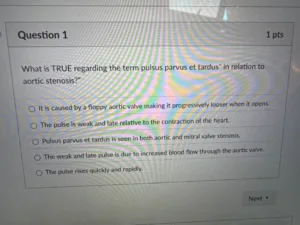
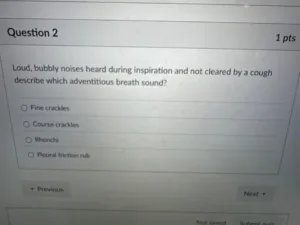
Question 1
What is TRUE regarding the term pulsus parvus et tardus” in relation to aortic stenosis?”
- It is caused by a floppy aortic valve making it progressively looser when it opens.
- The pulse is weak and late relative to the contraction of the heart.
- Pulsus parvus et tardus is seen in both aortic and mitral valve stenosis.
- The weak and late pulse is due to increased blood flow through the aortic valve.
- The pulse rises quickly and rapidly.
Question 2
Loud, bubbly noises heard during inspiration and not cleared by a cough describe which adventitious breath sound?
- Fine crackles
- Course crackles
- Rhonchi
- Pleural friction rub
Question 3
Osteoarthritis of the hip produces pain most commonly with which maneuver?
- Palpation of the lateral hip
- Flexion of the hip joint
- Extension of the hip joint
- Internal rotation of the hip joint
- Flexion of the spine
ANSWERS
Question 1
Answer: The pulse is weak and late relative to the contraction of the heart.
Explanation: Pulsus parvus et tardus indicates a weak and delayed pulse seen in aortic stenosis due to obstruction of left ventricular outflow.
Question 2
Answer: Coarse crackles
Explanation: Loud, bubbly noises heard during inspiration that do not clear with coughing indicate coarse crackles, usually caused by air passing through fluid in the larger airways.
Question 3
Answer: Internal rotation of the hip joint
Explanation: Hip osteoarthritis commonly produces pain with internal rotation, often felt in the groin or anterior thigh………………purchase this entire quiz at $10 only
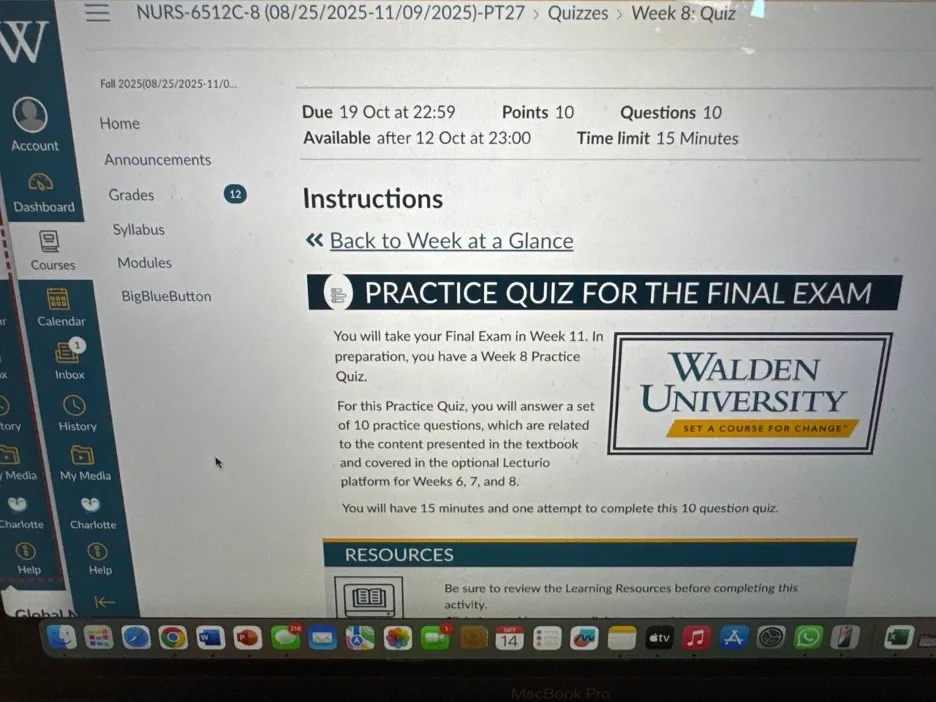
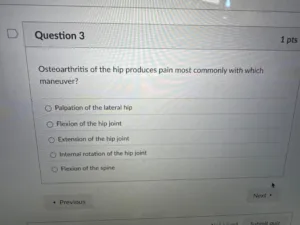
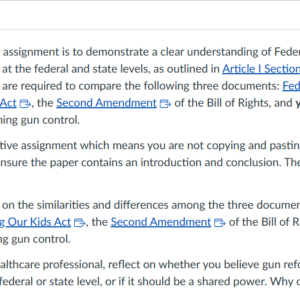
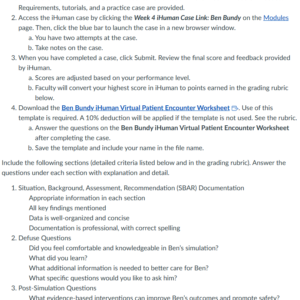
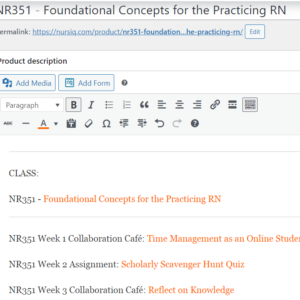
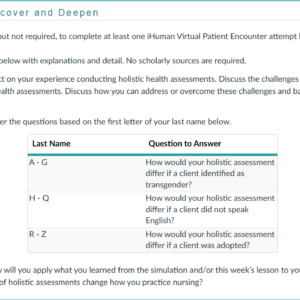
Reviews
There are no reviews yet.